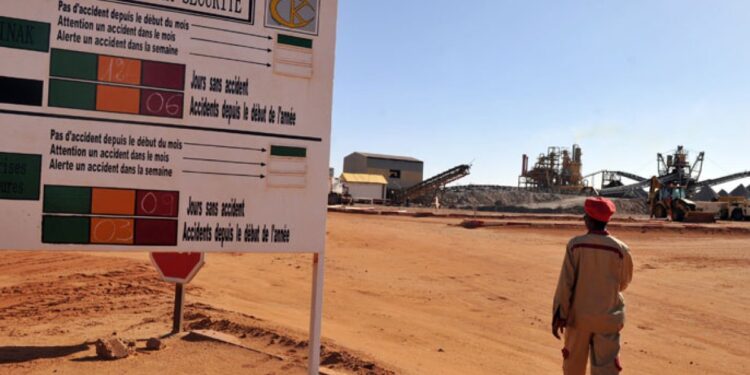On Monday, the security forces in Niger launched an attack on the offices of “Samir”, “Kominak” and “Urano Mining Niger” in the capital, Niamey, where the equipment was confiscated and the sites were closed in front of the employees.
This escalation comes within the framework of the ongoing tensions between the French Urano group, which was previously known as “Arva” and the Nigerian military government.
Relations between the two parties have witnessed a remarkable deterioration over the past months, due to Niger’s desire to regain control of its natural resources, especially the uranium, which has been extracted for a long time by foreign companies without achieving concrete benefits for the local population.
Urano in the face of many challenges
This attack represents a sharp escalation in the existing conflict, as the Urano Group said it has become unable to communicate with its local representative after the intervention of the security forces, which reflects a state of ambiguity and confusion over the decisions taken by the Nigerian authorities.
It is noteworthy that the situation has exacerbated since the end of 2024, when Urano began to suffer from great restrictions in her ability to follow its operations in Niger, as its subsidiaries are no longer subject to its direct management.
The Nigerian government also withdrew the operating license from the “Imorine” project, one of the most important sites that was run by Urano, which added more complexity to the situation.
Significant losses and economic repercussions
Urano faces, along with the loss of control over operations, another problem is that there are about 1,300 tons of raw uranium centers stored in the “Samir” site, which is valued at about 250 million euros, which disrupts the flow of revenues and increases pressure on the company.
This crisis increased the complexity of the economic situation of the company, which was largely dependent on its activities in Niger.
Also, these developments come at a time when the global geopolitical sector is witnessing major changes, as the military regime in Niger seeks to reduce French influence in the country and enhance its relations with other countries such as Russia and Iran.
The conflict between Urano and Niger appears to reflect the beginning of a new stage in how to manage natural resources in Africa.
Despite the ambiguity of the future, this crisis remains a milestone in the history of relations between African countries and Western companies, and it may constitute a model for other countries that seek to enhance their economic sovereignty and regain control of their natural wealth.



